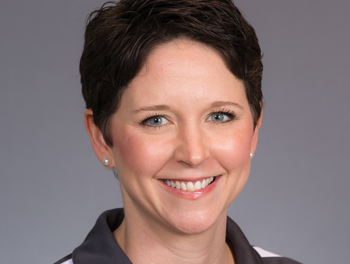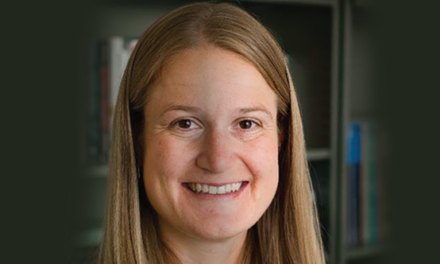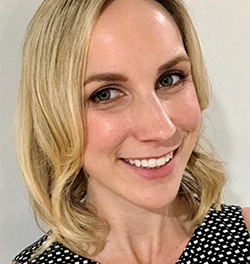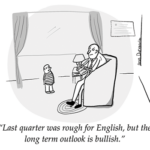Childhood and parenting vary across time and social class, and each approach has advantages and disadvantages.
KAPPAN: When we came up with the idea to do an issue of Kappan on American childhoods, we had your book Unequal Childhoods in mind. There’s a tendency in the popular media to talk about the ways in which childhood, singular, has changed in recent decades, due to new technologies, overprotective parents, and the like. But as your research has shown, differing segments of the American population tend to have very different kinds of childhoods. Tell us a bit about your early research and what led you to study the ways in which parenting and family life tend to differ by economic class.
ANNETTE LAREAU: Actually, I thought I would become a teacher. My mother taught 1st grade, my father was a tutor, and I planned to teach as well. But when I graduated from college, the student population was in decline and the job market for new teachers was terrible. So I more or less stumbled into becoming a researcher, focusing on the sociology of education.
One of the most important findings from sociology — dating to the 1966 Coleman report — is that parents’ own education and family background tend to have a profound impact on children’s life chances. It’s not destiny, but generally speaking, students’ achievement and progress through school is very highly correlated with their parents’ social class position.
When I was starting my career, though, we didn’t know much about why that was the case. People described it as a “black box” — we knew that most poor kids didn’t do well in school and that most rich kids did, but we didn’t know what was going on at a deeper level to produce those outcomes. That’s why I decided to look at family-school relationships. At the time, there had been a lot of research on parents and a lot of research on schools, but there wasn’t much research on the ways families and schools interacted.
KAPPAN: Why did you choose to focus on family life instead of, say, school resources or tracking or any of the other factors that might help explain differing school outcomes?
LAREAU: When I was in college, at the University of California-Santa Cruz, I participated in a service-learning program that sent students to live for 10 weeks with families in a small town in California’s Central Valley. In the mornings, we would ride the school bus with local kids — all of whom were African American and/or Latinx — and then spend the day working as teacher’s aides. And in the evenings, we would go around and help kids with their homework. It was a very powerful experience, and it got me thinking about the mismatch that often exists between life at home and life in the classroom. I would visit a kid’s house, and the parents would tell me, “I really want him to do well in school. I hope you can help him study and learn.” Then, the next day, I would be at school, and teachers would tell me, “His parents don’t seem to care about his education.”
So that piqued my interest and led to my first book — Home Advantage — which focused on 1st and 2nd graders at two schools in Northern California. One was in an affluent neighborhood and was considered a destination school, where many affluent families wanted to send their kids. The other was a high-poverty school that had a lot of turnover in students. I found that all of the parents, in both schools, had high hopes for their children to do well in school. But they had very different assumptions about what that would take.
The upper-middle-class parents tended to see education as a joint effort. Teachers did one part in the classroom, and they did the other part at home — they read to their kids at bedtime, helped them with their homework, and so on. And they were often quite critical of the teachers, even mean to them, breathing down their necks if they didn’t like what was happening at school.
By and large, though, the poor and working-class parents thought they should defer to teachers’ professional expertise, much as you would defer to the expertise of, say, a surgeon. You wouldn’t try to tell a surgeon how to operate on your kid; just so, you shouldn’t tell teachers how to teach. As these parents saw it, education was the school’s responsibility, and it occurred in the classroom, not at home with the family. The school and home were separate domains.
If working-class parents were relatively hands-off, it was because they respected the teacher’s expertise.
The most striking finding from the study, though, was the extent to which teachers tended to misread the working-class parents’ motivations. If those parents were relatively hands-off, it was because they respected the teacher’s expertise. But the teachers thought they were disinterested in their kids’ education.
KAPPAN: How did that lead you to your second book? What questions did you want to answer by way of another, much bigger study?
LAREAU: In the early 1990s, I wanted to look much more closely into what was going on in kids’ homes. So I recruited 88 families — middle-class, working-class, and poor, including White and Black families at each income level — to participate in my research. First, we did a two-hour interview with the mother and then with the father, followed by observations of their kids at school. And then we selected 12 of the families for a more intensive phase of the study. Research assistants and I observed each of those families every day for three weeks, including an overnight visit. This sort of research was very rare at the time, but it allowed us to collect an extraordinary amount of information about various aspects of family life.
As in my first study, I found that all of the parents wanted their kids to be healthy and happy, but they had differing ideas about what it means to have a normal family life. Specifically, I was able to identify three areas in which everyday life differed significantly between middle-class families, on one hand, and poor and working-class families on the other: how family members used language, how kids spent their time, and how parents interacted with schools and other institutions.
KAPPAN: What led you to group together the poor and working-class families in your study? Weren’t there any differences between them?
LAREAU: I expected their parenting strategies to differ. The working-class families lived in safer neighborhoods than the poor families, had more disposable income, less food insecurity . . . so I thought we’d see significant differences in family life, but the findings turned out to be more or less the same. I also expected to see powerful differences in the schools the kids attended in terms of family-school relationships, but they were very similar. Teachers wanted similar things from parents.
KAPPAN: You’ve described the middle-class approach to parenting as “concerted cultivation” and the poor and working-class approach as the achievement of “natural growth.” What do you mean by those terms?
LAREAU: It’s meant to be a gardening analogy. Concerted cultivation is like raising a plant in a hothouse, where you’re constantly pruning and tinkering with the soil; natural growth is what happens when you put the plant in a nice corner of the yard where it gets rain and sun and you do not fuss with it so much. Neither approach is better than the other. They’re just different.
In the book, I show that in all of the areas that we studied — language use, how kids spent their time, and how parents interacted with institutions — the middle-class parents saw parenting as a hands-on, labor-intensive project. Poor and working-class parents, on the other hand, used their scarce resources to take care of their kids — putting food on the table and a roof over their heads. After that, they presumed that the kids would grow spontaneously.
Start with language use, for example. Here, my findings echoed what the sociolinguist Shirley Brice Heath described in her 1983 book Ways with Words: The middle-class parents were constantly trying to cultivate their kids’ language skills. They talked to them all the time, elaborating and explaining, correcting their grammar, suggesting new vocabulary . . . and when their kids asked questions, they answered them with more questions, which invited more talk. By contrast, the poor and working-class parents were a lot more comfortable spending time together in silence. When they talked to kids, they were much more directive, and kids tended not to whine or talk back to them. They tended to be more respectful to adults in general.
Middle-class parents didn’t hesitate to intervene, while poor and working-class parents tended to be deferential.
When it comes to how kids spent their time, the middle-class parents were constantly arranging and monitoring activities and driving kids from one to the next. But if the poor and working-class kids had, say, one or two activities scheduled for the entire weekend, their parents would say they were “super-busy.” Instead, they spent a lot of their time playing and hanging out with their friends, and they initiated activities on their own. Plus, they were expected to spend significant amounts of time with kinfolk. On the weekends, events like christenings and baptisms organized a lot of their family life.
And when it comes to parents’ interactions with schools and other institutions, my findings were consistent with what I described in my first book. Whether they were at the doctor’s office, the DMV, or school, middle-class parents didn’t hesitate to intervene, while poor and working-class parents tended to be deferential.
KAPPAN: Presumably there were some poor and working-class parents who tried to intervene at school . . .
LAREAU: Sure, but we found that when they did confront teachers — to question a grade, say, or to get their kid into a special program — they weren’t as successful, mostly because they weren’t as familiar with the rules of the game. Teachers like parents who praise them, so the trick for parents is to praise the teacher right up to the point when they can slip the knife in and give it a twist. For instance, when we observed parent-teacher conferences, we’d see middle-class parents start out super-polite and agreeable, and then at the very end of the meeting they’d say something like, “But I’m worried that she’s not being challenged enough . . .” In other words, they’d wait for just the right moment to come out with what they really wanted, which was for their kid to get some extra opportunity or special treatment. But when the poor and working-class parents tried to intervene, they tended to be direct, or to come across as angry, and teachers would become defensive and refuse to budge.
KAPPAN: It’s worth noting that you published the first edition of Unequal Childhoods in 2003, when the term “helicopter parenting” was just beginning to enter the mainstream. Today, when the media talk about this stuff, do they get it right, or does news coverage about hyper-parenting miss some of the nuances?
LAREAU: To me, the term helicopter parenting misses a key aspect of the dynamic. It presumes that parents are hovering over children. But really they’re trying to pull things out of their kids, constantly pruning and probing and looking for little ways they can intervene to help them grow. That’s why I prefer the term concerted cultivation.
KAPPAN: This issue of Kappan includes an excerpt of Matthias Doepke and Fabrizio Zilibotti’s new book on the economic roots of today’s parenting strategies. Whether you call it concerted cultivation or helicopter parenting, as they do, their data suggest that these changes in family life map closely onto recent changes in the global economy. In other words, if middle-class parents have become much more controlling, it’s a rational reaction to the demands of the labor market in which their kids will have to compete. Do you also see economics as the driving force behind the kinds of parenting that you’ve described?
LAREAU: Yes, and economics help explain not just overall shifts in parenting strategies but also the specifics of those strategies. I mean it’s flat-out expensive to schedule all those after-school activities and pay league fees and buy the right shoes. And it’s no surprise that when resources are scarce, parents expect their kids to grow naturally, without so many organized activities and interventions. For many of the parents in our study, it strained their budget just to purchase a white blouse for their daughter’s spring concert, for example, or to buy vegetable oil to make a birthday cake.
Plus, for the most part, the poor and working-class parents saw a difficult adulthood looming ahead for their children, and they wanted to protect them from it by letting them play and hang out with friends. By contrast, the middle-class parents — even with their anxieties about college competition and the job market — saw the adult world as a more generous and open place. Music lessons and sports and other activities seemed like good preparation for a fulfilling adult life. Parents would say, “I don’t expect him to be Mozart, but I want him to know about music.”
KAPPAN: Your book Unequal Childhoods is subtitled Class, Race, and Family Life. But you seem to be arguing that differences in parenting strategies have to do mostly with class. Was race not a factor in how the parents in your study raised their kids?
LAREAU: Yes and no. Race was certainly an important factor in these families’ daily lives. For the most part, the study participants lived in racially segregated neighborhoods, went to racially segregated churches, and had very different interactions with the world around them. For instance, as they grew older (and I interviewed them again when they were around 20), the Black boys in the study (including the middle-class boy who went on to attend a fancy college and become a doctor) said they were often stopped by police and followed around in stores — I didn’t hear that from the White boys. Similarly, the Black parents worried about discrimination in the workplace and racial harassment on the street. They were familiar with all the research showing the extent of racial bias in health care, policing, and school discipline, and — in comparison to the White parents — they were deeply concerned that teachers wouldn’t treat their kids fairly.
But in the three areas that I looked at most closely — language use in the home, how kids spent their time, and how parents interacted with schools and other institutions — differences in parenting strategies had much more to do with class than race. The White middle-class parents and the Black middle-class parents talked to their children in very similar ways, filled their schedules with the same sorts of activities, and were equally likely to meet with teachers and make demands on their school. And the poor and working-class parents, both White and Black, were equally directive when speaking to their kids, equally hands-off during leisure time, and equally deferential to educators.
KAPPAN: You’ve been very careful to explain that you’re making no moral judgments about these differing forms of parenting and family life. Your research has revealed patterns that correspond to social class, but you’re not arguing that one kind of parenting is better than the other.
LAREAU: Yes. And it’s important to remember that differing approaches to child-raising keep coming into and out of fashion. Not too long ago, for instance, middle- and upper-class parents tended to practice corporal punishment and tell their kids to speak only when spoken to. Ultimately, the question isn’t whether one approach or another is objectively the best. Rather, the real issue is how well the given parenting strategies sync up with what’s expected in schools, the labor market, and elsewhere. That is, what are the practical implications of raising children one way or another?
When it comes to the two approaches to parenting that I’ve studied, it’s clear that each has its advantages and disadvantages.
The middle-class kids got a lot of informal instruction at home, which helped them do well at school. They were encouraged to talk with adults on an equal footing. They participated in all sorts of organized activities that developed their talents and social networks. Their parents and other family members taught them the rules of the game: how you ask for extra help in school, how you choose a college, how you get a summer internship, how you dress for a job interview, and so on. Plus, they grew up with a strong sense of entitlement. (Though, of course, that often turns into a disadvantage in the long run. At some point, they discover that they can’t get everything that they want.)
For their part, the families of the poor and working-class kids didn’t sync as well with the school and college, but those kids grew up with much more autonomy and independence. They spent more time exploring their neighborhoods, creating their own games and activities, and negotiating conflicts on their own. Unlike the middle-class kids, they were rarely bored or passive. And while the middle-class kids often had vicious fights with their siblings and parents, the poor and working-class kids had fewer and less intense squabbles.
KAPPAN: But whatever the advantages of poor and working-class parenting, it seems like they pale in comparison to the advantages of growing up middle-class. In today’s economy, strengths like autonomy, independence, and conflict management are good to have, but they won’t get you a good job. And in some of your recent research, you’ve found that the transition to adulthood has only become more difficult for young people growing up below the middle class, right?
LAREAU: Yes, but it’s not just because they tend to lag behind academically. Even more important is whether they have access to generalized knowledge about how institutions function, those hidden rules of the game that middle-class kids learn from their parents and friends: how you work the system, who you can turn to for help, how you get somebody to write you a good letter of recommendation . . .
This is why teachers are so important. I’ve yet to meet somebody who was upwardly mobile who didn’t have a teacher behind them, somebody who helped them apply to college, gave them advice on how to navigate the system, and — perhaps most important — what to do if they hit a bump in the road. Often, when middle-class kids run into an obstacle, their parents will step in and hire a tutor or therapist or college counselor to get them back on track. But for poor and working-class adolescents, a single pothole can throw them off entirely. If they’re $300 short for tuition, for instance, they might give up on going to college, unless a teacher or adviser is there to let them know they can call the admissions office and renegotiate their financial aid package.
KAPPAN: Given that income inequality is growing and wealth gaps are expanding, are we seeing these parenting strategies diverge even more? In this new Gilded Age, are wealthy parents just doing more of the same (giving their kids even more language enrichment, scheduling even more activities, and making even greater demands on teachers), or are wealthier kids beginning to experience a qualitatively different kind of childhood from before?
LAREAU: Recently, I’ve been studying very wealthy families, but the study is in the earliest stages. I will say, though, that I see no reason to think that the two main approaches to parenting — concerted cultivation and natural growth — have changed, though wealthier parents probably have become even more intense about cultivating their kids.
If there’s a qualitative difference from previous generations, I suspect it has to do with economic segregation. Even 30 or 40 years ago, most Americans would regularly encounter people of a different social class. But that’s becoming increasingly rare. If you’re relatively well off, how often do you interact with poor people? Unless you’re a social worker or teach in a low-income community, the answer is probably not very often. Maybe at the zoo or if you’re shopping at IKEA. But it’s pretty unusual. Today, rich and poor people shop at different grocery stores, eat at different restaurants, have picnics at different parks, and, of course, send their kids to different schools. As Sean Reardon, who teaches at Stanford, has found in his research, we are significantly more economically segregated from one another than in earlier years.
KAPPAN: Given that most teachers come from the middle class, what will it take for them to better understand their poor and working-class students and parents?
LAREAU: I’d focus on two things. First, I think it’s important for teachers to recognize the skills and values those parents are teaching their kids, rather than focusing on what they’re not doing. For instance, I’ve been studying first-generation college students, and I’ve found that when they get to college, they already know how to write up a budget. They know how to do their laundry. They’re very good at problem solving. In short, they have skills that I simply don’t see in many of the upper-middle-class kids I teach at the University of Pennsylvania. It’s true that some of the more affluent kids have very high test scores. But that’s not the whole picture. And teachers would do well to look at their students a little more holistically and build on whatever strengths their parents have helped them develop.
Second, educators should keep in mind that it can be humiliating for parents to be asked to engage with the school in ways that make them feel uncomfortable. Not everybody feels prepared to go over their kids’ math homework or to come and read a book to the class. Maybe those parents can and want to be involved in other ways that don’t put them on the spot. Or maybe the student has somebody else in their life — an aunt or a pastor or older brother — who wants to read to the class.
KAPPAN: Any closing words to share?
LAREAU: Just to reiterate that when it comes to the differing ways in which parents raise their kids, there’s good news and bad news. The good news is that each kind of childhood can provide us with experiences that inform and enrich our lives in innumerable ways. The bad news is that many of us assume that our own experience of childhood was the normal and correct way to grow up. What’s challenging is to value our own upbringing while, at the same time, being really open to the idea that other ways of parenting are equally valid. And if we work with young people who are growing up in families that are very different from our own, we need to try to meet them where they are.
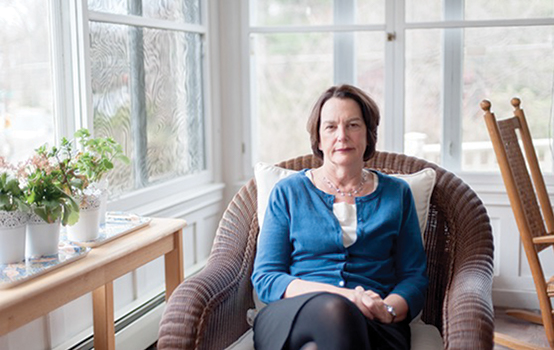
ANNETTE LAREAU Is the Edmund J. and Louise W. Kahn Professor in the Social Sciences and a professor of sociology at the University of Pennsylvania, in Philadelphia, where she also leads a mentorship program for new faculty in the School of Arts and Sciences. Her research focuses on family life in the United States, including topics such as family-school relationships, social class and its influence on child-rearing, the process through which parents decide where to live and send their children to school, and, in her current study, family life among the very wealthy.
Lareau’s books include Home Advantage: Social Class and Parental Intervention in Elementary Education (Rowman & Littlefield, 1989), Unequal Childhoods: Class, Race, and Family Life (University of California Press, Second ed., 2011), and, with Kimberly Goyette, the edited collection Choosing Homes, Choosing Schools (Russell Sage Foundation, 2014). Her work has often been featured in media coverage of childhood and parenting in America, she has won a number of national awards for her scholarship, and she served as president of the American Sociological Association for 2013-14.
Raised in California, Lareau received her bachelor’s degree from the University of California, Santa Cruz, and her master’s and Ph.D. in sociology from the University of California, Berkeley. She joined the faculty at the University of Pennsylvania in 2008 after having taught at the University of Maryland, Temple University, and Southern Illinois University, Carbondale.
Citation: Heller, R. (2019). More than one way to grow up: An interview with Annette Lareau. Phi Delta Kappan, 100 (7), 31-36.
ABOUT THE AUTHOR

Rafael Heller
Rafael Heller is the former editor-in-chief of Kappan magazine.


